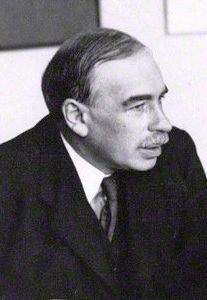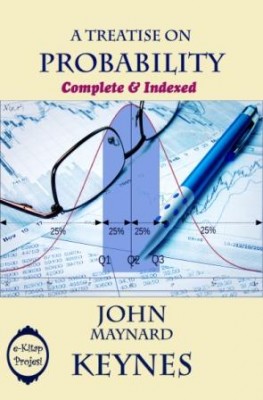More Search Results...

John Maynard Keynes, 1st Baron Keynes,(1883 – l 1946), was a British economist whose ideas have fundamentally affected the theory and practice of modern macroeconomics and informed the economic policies of governments.
He built on and greatly refined earlier work on the causes of business cycles, and he is widely considered to be one of the founders of modern macroeconomics and the most influential economist of the 20th century. His ideas are the basis for the school of thought known as Keynesian economics and its various offshoots.
In the 1930s, Keynes spearheaded a revolution in economic thinking, overturning the older ideas of neoclassical economics that held that free markets would, in the short to medium term, automatically provide full employment, as long as workers were flexible in their wage demands. Keynes instead argued that aggregate demand determined the overall level of economic activity and that inadequate aggregate demand could lead to prolonged periods of high unemployment. According to Keynesian economics, state intervention was necessary to moderate “boom and bust” cycles of economic activity.
He advocated the use of fiscal and monetary measures to mitigate the adverse effects of economic recessions and depressions. Following the outbreak of World War II, Keynes’s ideas concerning economic policy were adopted by leading Western economies. In 1942, Keynes was awarded a hereditary peerage as Baron Keynes of Tilton in the County of Sussex.
Keynes died in 1946; but, during the 1950s and 1960s, the success of Keynesian economics resulted in almost all capitalist governments adopting its policy recommendations.
Keynes’s influence waned in the 1970s, partly as a result of problems that began to afflict the Anglo-American economies from the start of the decade and partly because of critiques from Milton Friedman and other economists who were pessimistic about the ability of governments to regulate the business cycle with fiscal policy.
However, the advent of the global financial crisis of 2007–08 caused a resurgence in Keynesian thought. Keynesian economics provided the theoretical underpinning for economic policies undertaken in response to the crisis by President Barack Obama of the United States, Prime Minister Gordon Brown of the United Kingdom, and other heads of governments.
A Treatise on Probability
The subject matter of this book was first broached in the brain of Leibniz, who, in the dissertation, written in his twenty-third year, on the mode of electing the kings of Poland, conceived of Probability as a branch of Logic. A few years before, “un problème,” in the words of Poisson, “proposé à un austère janséniste par un homme du monde, a été l’origine du calcul des probabilitiés.” In the intervening centuries the algebraical exercises, in which the Chevalier de la Méré interested Pascal, have so far predominated in the learned world over the profounder enquiries of the philosopher into those processes of human faculty which, by determining reasonable preference, guide our choice, that Probability is oftener reckoned with Mathematics than with Logic. There is much here, therefore, which is novel and, being novel, unsifted, inaccurate, or deficient. I propound my systematic conception of this subject for criticism and enlargement at the hand of others, doubtful whether I myself am likely to get much further, by waiting longer, with a work, which, beginning as a Fellowship Dissertation, and interrupted by the war, has already extended over many years.
More info →




























